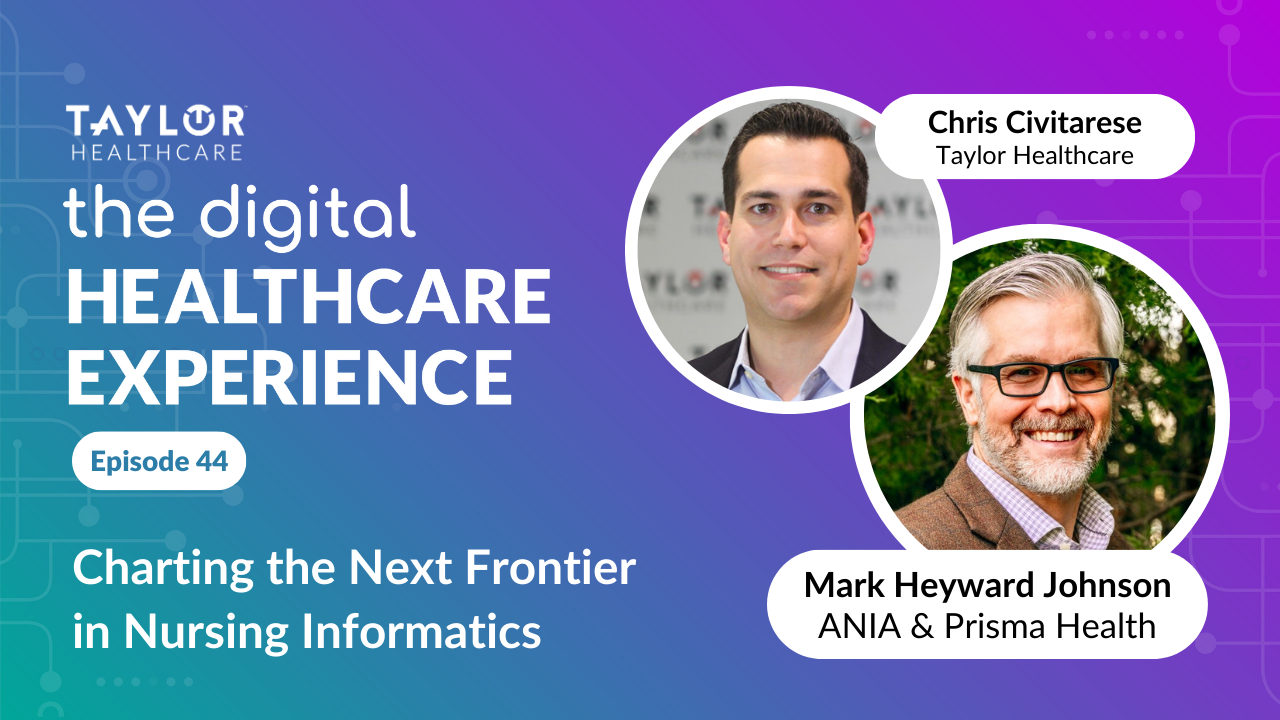
Season 3 launches with a frontline look at nursing informatics, EMR optimization, and AI in healthcare with Mark Heyward.
With iMedHealth, Taylor Healthcare provides hospitals and health systems with a single source of digital solutions that improve patient-provider communication and systemwide performance.
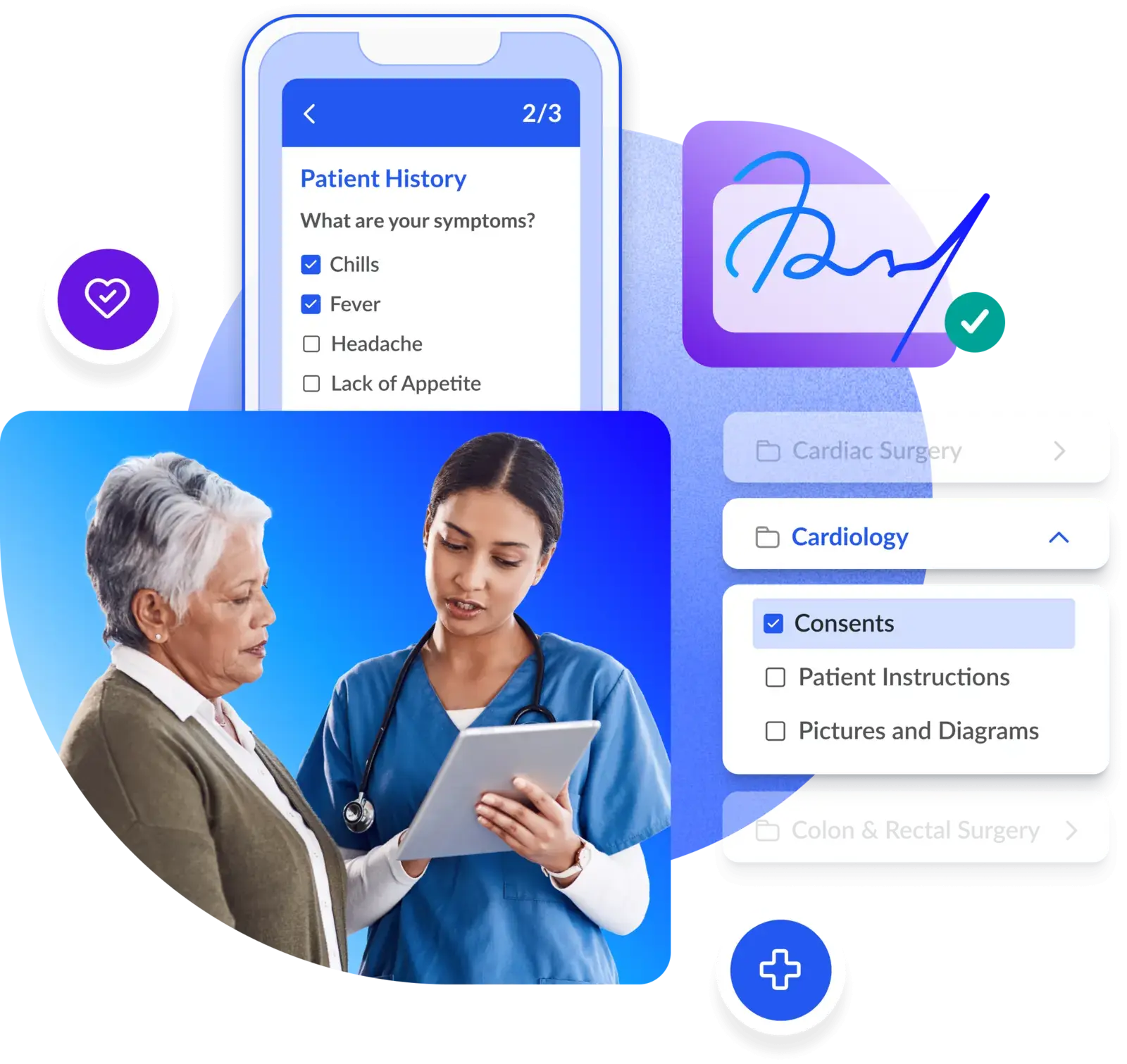
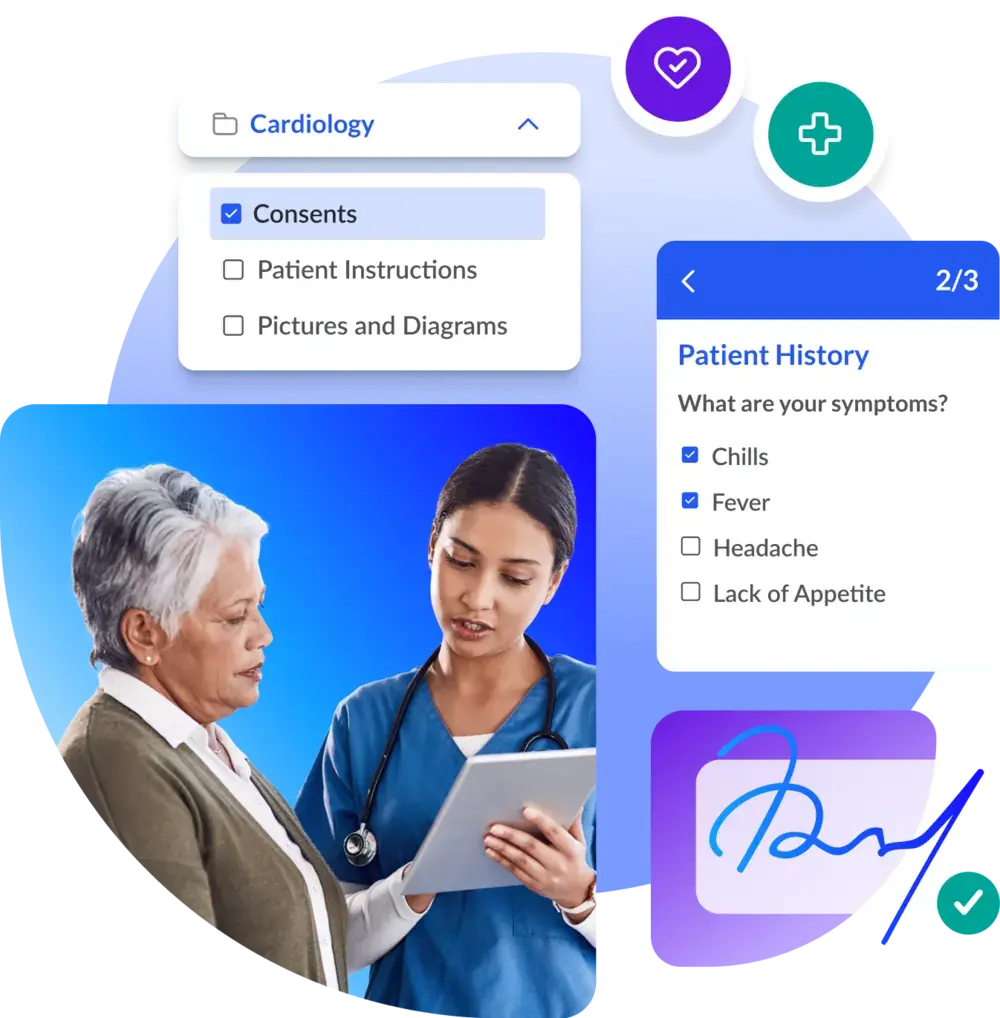

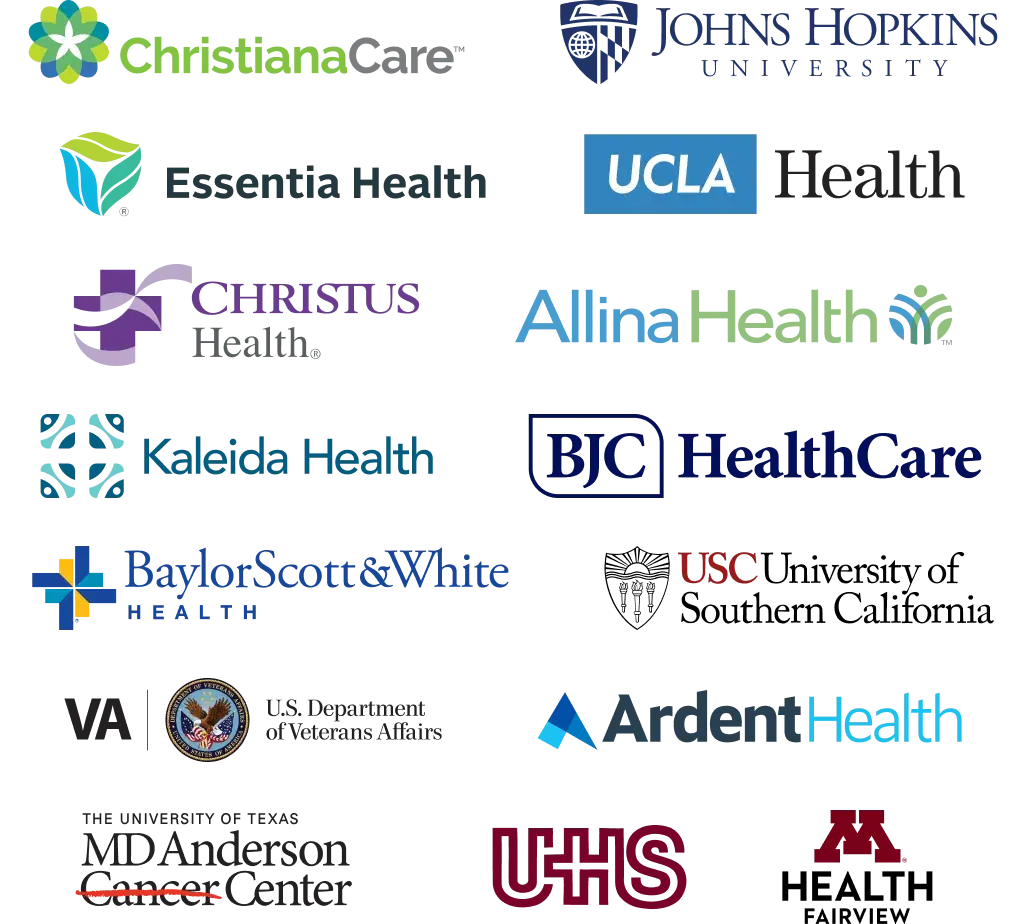

iMedHealth is a single cloud-based platform that
seamlessly integrates with your EHR.
iMedHealth provides you with a suite of digital solutions
that enhance informed consent, streamline downtime
operations, and bolster patient education and engagement.
Digital informed consent documentation that improves patient-provider communication.
Digital clinical forms library with more than 5,000 treatments and procedures.
Taylor’s patented HIPAA-compliant mobile signature capture technology.
Ensures uninterrupted document access and management during all downtime situations.
Streamlines the management of clinical, administrative and departmental documentation.
Provides 24/7 access to interpretation services in more than 300+ languages.
iMedHealth integrates with all major EHR systems, allowing you to access its
full suite of solutions directly within your existing workflows. With real-time
data exchange between iMedHealth and your EHR, you can manage patient
information and complete essential tasks without switching platforms.
Regardless if you're a large healthcare system or a single doctor’s office, the installation and integration of iMedHealth is scalable to your requirements.
iMedHealth seamlessly integrates with your existing EHR, allowing you to navigate between your system and the information housed in iMedHealth with ease.
It will feel as though it was part of your EHR all along.
iMedHealth is embedded within your EHR and launches in a browser-in-browser style, allowing you to access its solutions and information without leaving your EHR or opening a new browser window.
Updates in iMedHealth are automatically stored within patient records in your EHR, ensuring that informed consent, patient education, downtime preparedness and other workflows are not disrupted.
Healthcare software, technology and document automation has made
considerable progress. EHRs have digitized most of the structured workflows
and documentation requirements for patient care. Even with these advances,
hospitals and health systems still face a variety of challenges.
Several key areas in the healthcare industry remain disjointed and often paper-based.
Patient portal adoption continues to be fragmented among patient groups.
Ever-present ransomware threats mean health systems must prepare for longer EHR outages
Healthcare remains behind other industries with multimedia, video and digital communications.
Rapidly changing technology is challenging the status quo of ethical and legal considerations.
Patient-provider communication is always crucial to patient satisfaction and risk reduction.
Taylor Healthcare’s iMed enhances the patient-provider relationship and reduces malpractice risks by digitizing the informed consent process.
What you need is a single healthcare partner with an integrated solution that works with your EHR across both paper and digital forms.
Taylor Healthcare is that partner, and iMedHealth is the comprehensive suite of digital healthcare solutions that can improve your digital forms automation, patient-provider communication and operational efficiency.

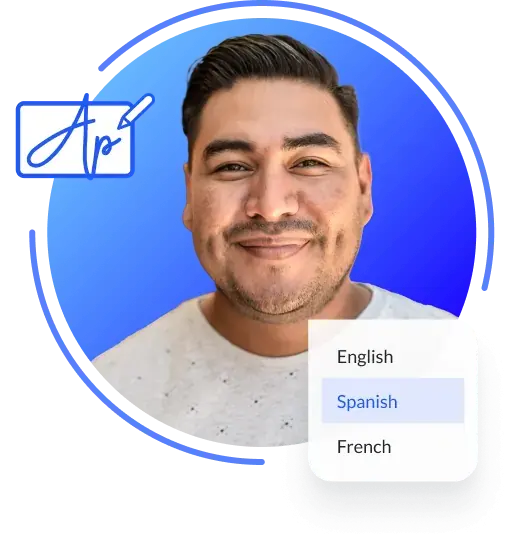
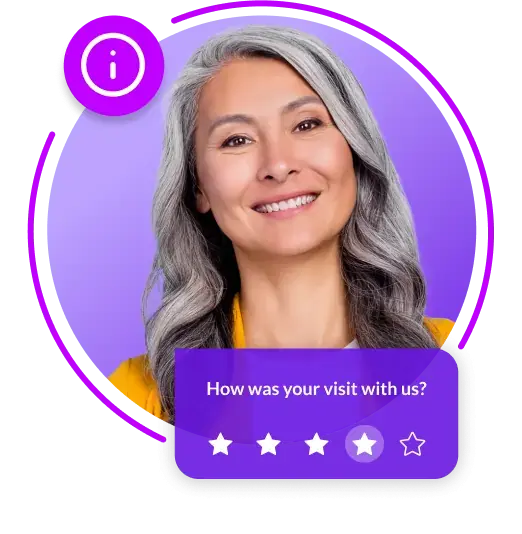

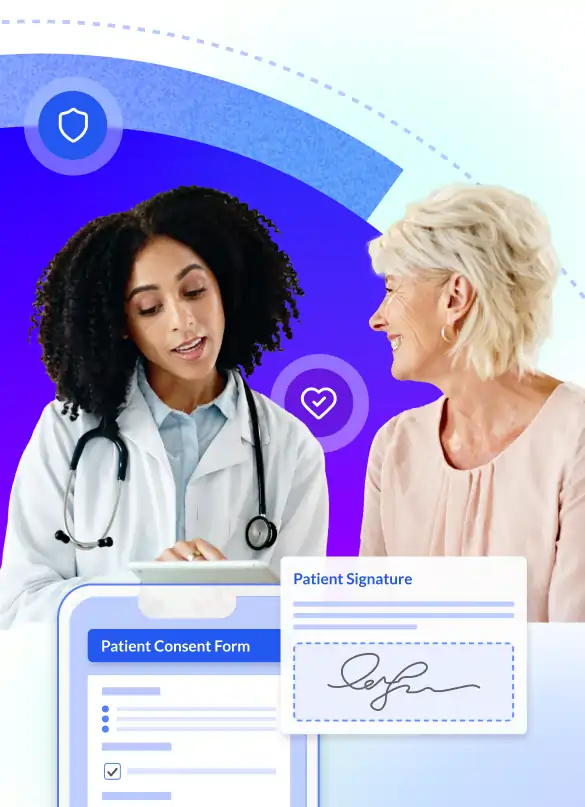
Your informed consent process influences everything from patient satisfaction and legal risk to revenue. The far-reaching impacts are too important to hospital operations to keep relying on paper-based processes.
Electronic informed consent technology greatly enhances patient-provider communication and joint decision-making, and empowers patients to advocate for their own health.
Taylor Healthcare’s iMedConsent software
enhances the patient-provider relationship and
reduces malpractice risks by digitizing the
informed consent process.
With iMedConsent, physicians can tailor consent
forms in advance for each patient, ensuring the
information is relevant and specific to their needs.
Patients have the flexibility to review and sign
consent documents digitally from anywhere, on
any mobile device, providing ample time for
informed decision-making.
Trusted by more than 250 health systems, including the U.S. Department of Veterans Affairs.
Informed consent documents are never lost or misplaced.
Patients can sign informed consent documents from anywhere with their own mobile devices.
Consistent information is used in consent processes by all providers and facilities.
Operating rooms do not sit unused while consent forms are located.
iMedConsent utilizes a curated content library called iMedContent that provides comprehensive clinical information for more than 5,000 treatments and procedures.

Enable shared decision-making from anywhere. A key feature of iMedConsent is iMedEngage, which includes Taylor Healthcare’s patented, HIPAA-compliant mobile signature capture technology.

Telehealth is an integral part of healthcare. It enhances patient satisfaction and helps physicians deliver faster care. That’s why iMedConsent is a completely web-based application.
As patient-as-consumer preferences shift, it’s extremely important for
healthcare providers to use as many media forms as possible to educate and
engage patients, and do so in their preferred channel of communication.
When it comes to patient education and engagement solutions, the healthcare industry is
still finding its way in the digital landscape. This is why iMedHealth is designed to be a
digital distribution platform that serves as a complement to patient
portals and patient information access.

Limited knowledge of medical terms and concepts can make it difficult for many patients to understand procedure and treatment information.
Patients who do not speak the primary language of the healthcare providers may struggle to understand their medical instructions.
Healthcare providers often have limited time to spend with each patient, which can hinder thorough education and ensuring patients fully understand their care plans.
Diverse cultural backgrounds can affect how patients perceive and understand health information, as well as their willingness to follow medical advice.
Patients have varied learning preferences, such as visual, auditory or kinesthetic, which can make it challenging to deliver information in a way that is effective for everyone.
Patients who are stressed, anxious or in pain may find it difficult to focus on and retain the information provided to them.
Hospitals may lack the necessary resources, such as educational materials or trained staff, to provide comprehensive patient education.
One of the challenges for healthcare providers is increasing patient health equity. Health equity is the opportunity and ability to find, understand and use health information and services to make the best decisions for themselves and others.
A foundational aspect of health equity is strong patient literacy. Good outcomes are contingent on patients understanding their provider’s recommendations on procedures and treatments.
General healthcare forms are often lacking when it comes to considering patient health and cultural literacy.iMedHealth improves shared decision-making through clear, culturally sensitive digital consent forms that empower patients to make informed decisions about their care.
Clear communication with every patient is crucial to strong patient engagement and satisfaction. For more than 20 years, Taylor Healthcare has been committed to ensuring expert translation services are available.
iMedInterpret makes it easier than ever to provide patients with accurate translations of physicians’ written and digital documentation, care instructions, and more.

When you use iMedHealth, you're also promoting the adoption of digital
services to your patients. Whether you are trying to increase patient portal
adoption or are using other communication methods to digitally engage with
patients, iMedHealth supports both efforts.
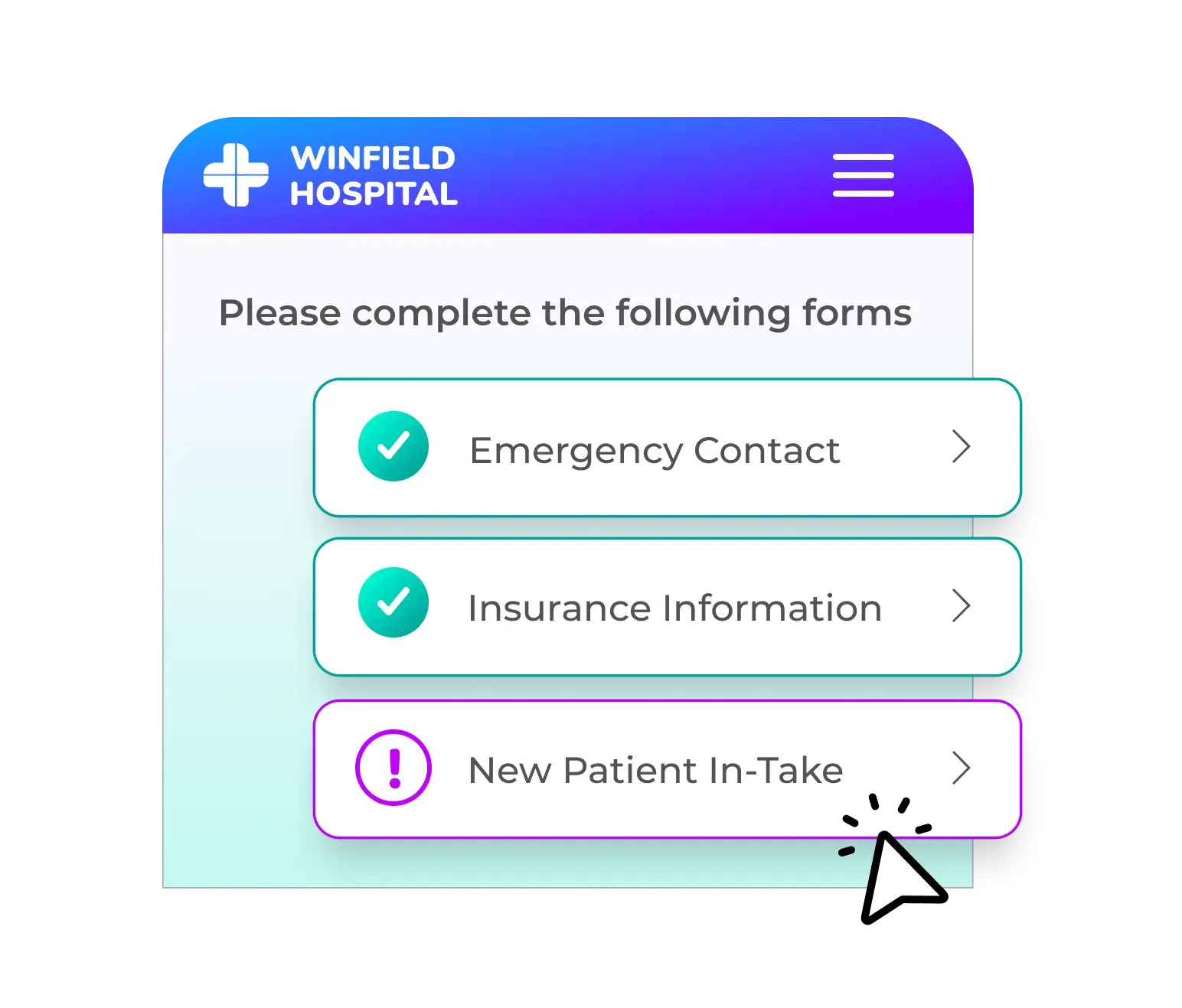
Documentation can be filled out ahead of appointments and procedures, giving patients the time they need to fully review and understand the information.
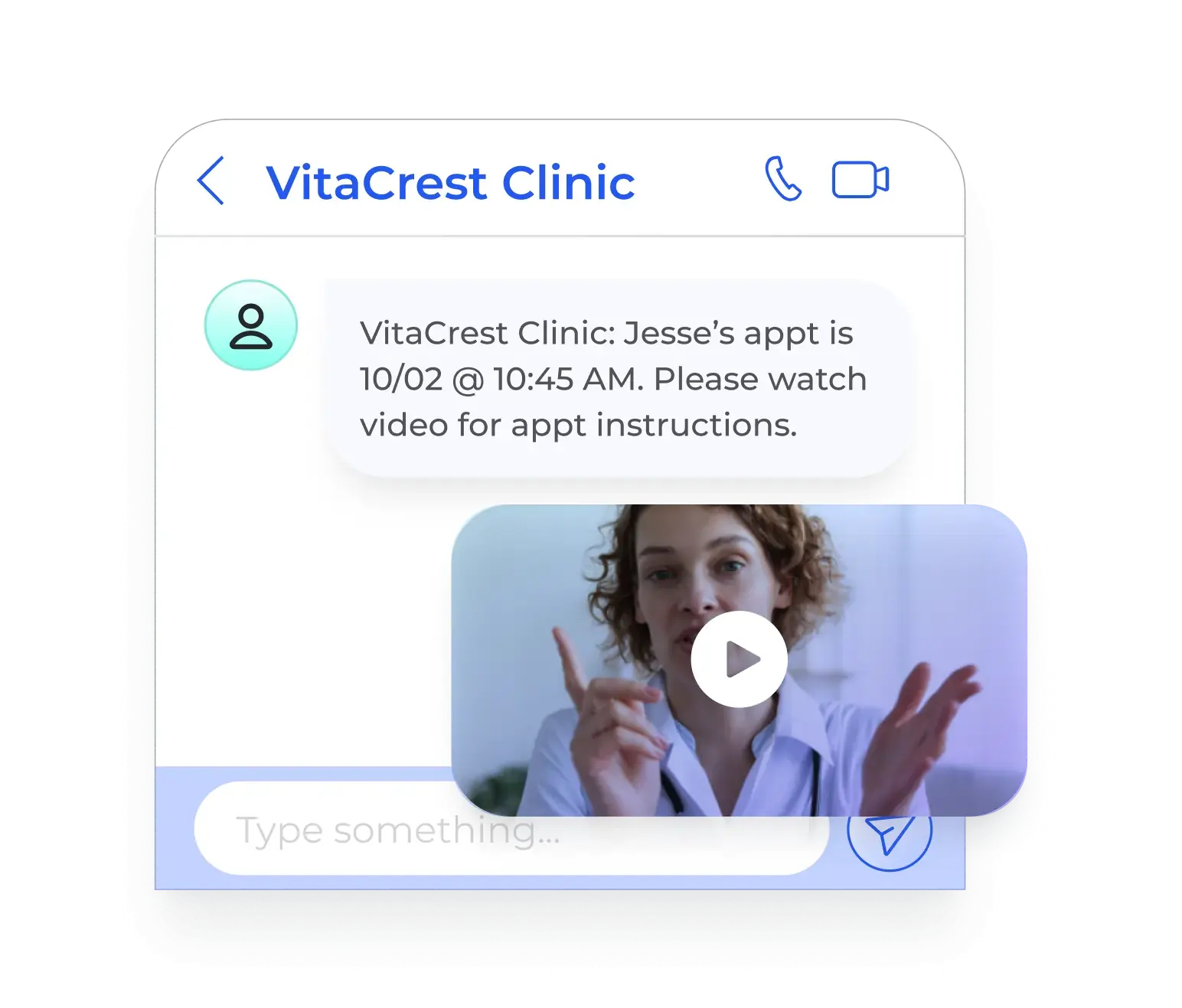
Materials including videos, text messaging and other digital multimedia as well as mail, documents and handouts can be customized for each patient.
Access to thousands of digital patient education documents including anatomical images, pre-procedure and discharge instructions, and drug monographs.
If your organization is using a patient portal, iMedHealth can help you get more patients to
sign up. Research shows that patients prefer online and mobile solutions when it comes to
interacting with their healthcare providers.
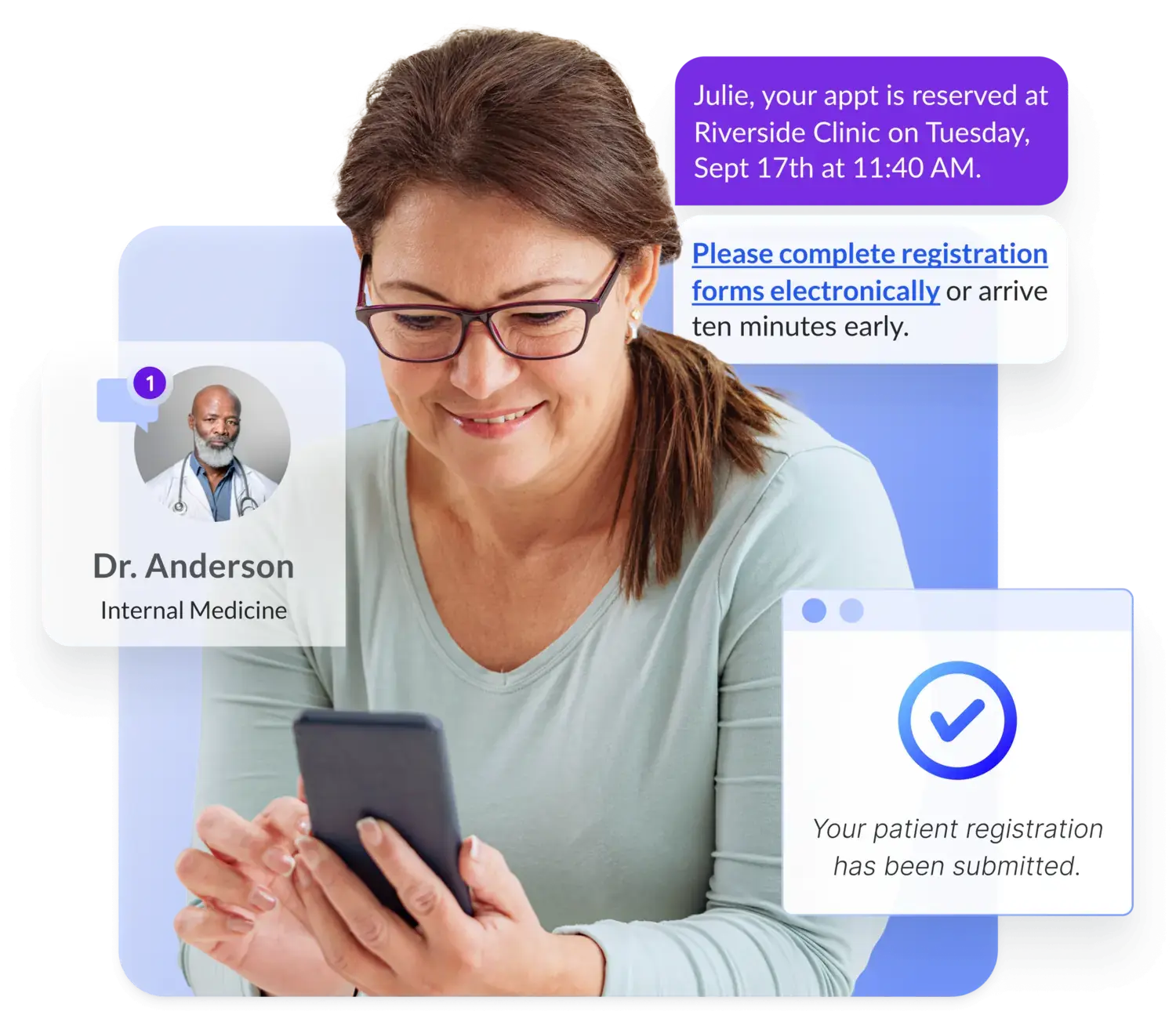
iMedHealth solutions can be used as gateways to your patient portal, using links to promote your portal and giving patients who have not yet opted in opportunities to sign up.
While patient portals house patient health records, there are still some forms that don’t quite fit in that structure. iMedHealth can serve as a digital platform for these forms.
Patient portals help patients and physicians interact without extra office visits. iMedHealth furthers this flexibility with digital documentation that can be reviewed at home.
iMedHealth features a web-based application called iMedAutomate.
iMedAutomate streamlines the creation and management of clinical,
administrative and departmental documentation.
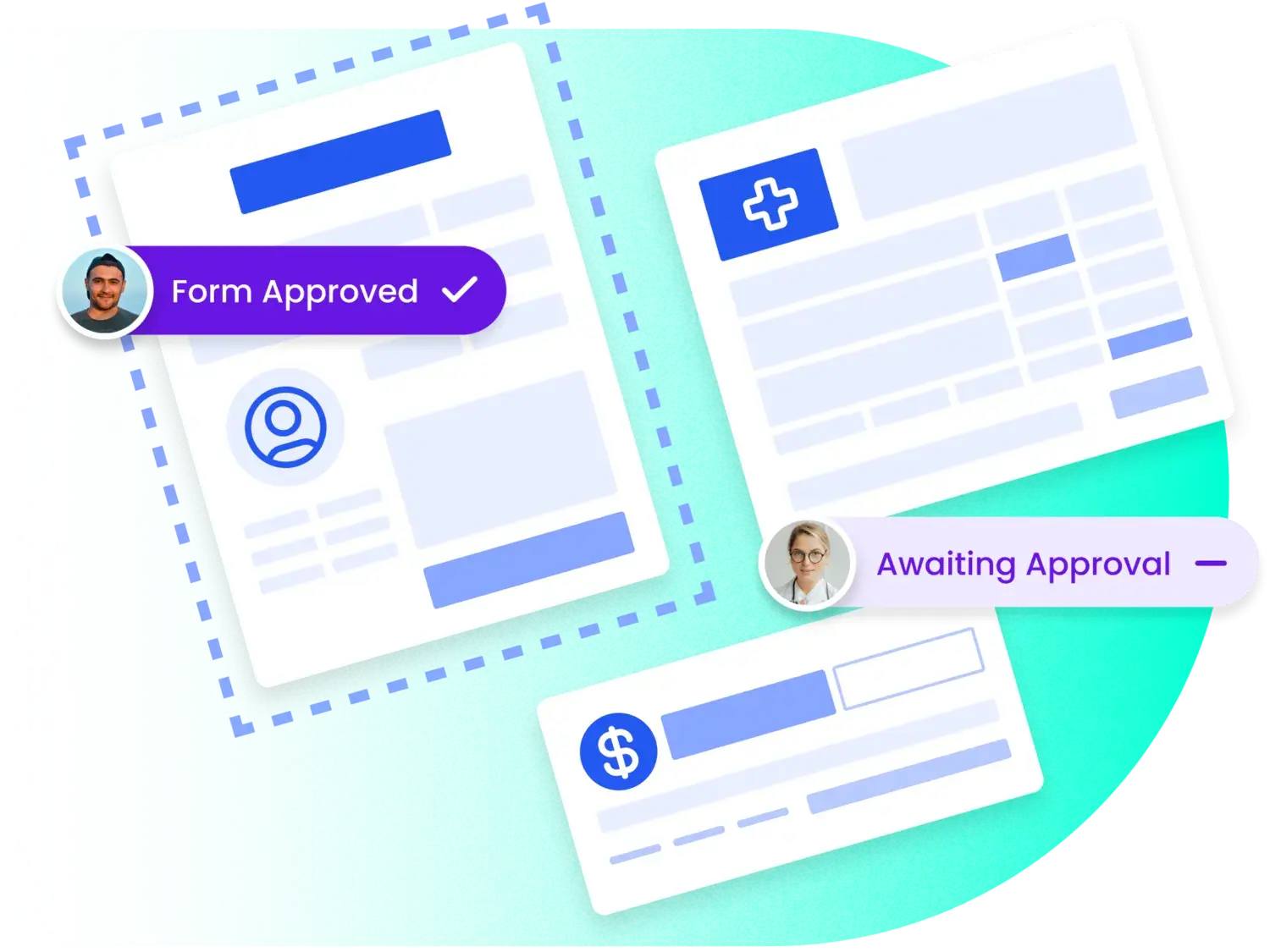
iMedAutomate uses a workflow engine that helps you create and manage content. It's an easy-to-use intuitive system that accelerates the development, approval and updates of both electronic and paper forms.
While iMedHealth can completely eliminate paper through purely digital forms in many instances, certain documents will need to remain paper-based.
iMedAutomate provides an enterprise library for documents, organized in a customizable folder hierarchy. Users are able to print patient-specific documents on-demand at the point-of-care merged with patient demographics and barcodes.
EHR unavailability will occur sometime in a healthcare environment. It’s not a matter
of if, but a matter of when. Each situation represents hazards that directly affect
patient care and physicians’ ability to provide it.
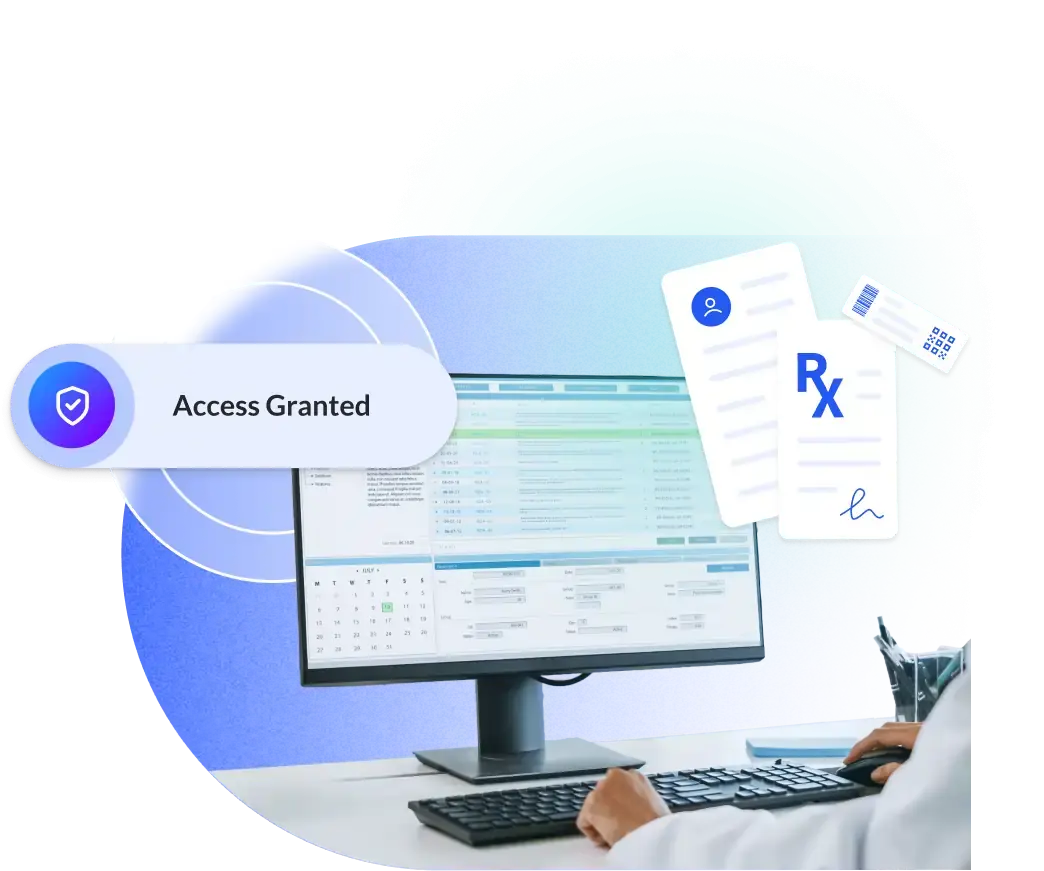

iMedDowntime can be added to
iMedAutomate to provide robust and resilient
downtime contingencies for clinical
documentation processes within the EHR,
ensuring uninterrupted care and operations.
iMedDowntime allows for your document library to be accessed on local workstations throughout the health system. Users can access compliant downtime versions of clinical forms without needing to stock costly and often-out-of-date downtime preprinted forms.
Enhance patient safety and care by being prepared for and defending against any type of outage.
EHR unavailability and outages can lead to increased risks across the entire healthcare organization.
Continue to function efficiently and effectively while resolution is sought.
Eliminate the risk that invariably comes with handwritten wristbands, labels and orders.
Treat patients without the need for overtime and manual workarounds.
Reduce obsolescence by making pre-printed forms and documents unnecessary.
Taylor Healthcare’s deep knowledge of industry-specific regulations helps you
eliminate risk of non-compliance fines and legal ramifications.iMedHealth ensures secure, compliant processes with advanced solutions
tailored to healthcare needs.
An easy-to-use, intuitive system requiring no additional hardware and minimal IT support.
Interoperable with electronic health records (EHRs) for secure storage of sensitive data.
The most current versions of forms are always in use by every facility and provider.
Trusted hosting partner in Microsoft Azure and compliant with industry standards such as:

Season 3 launches with a frontline look at nursing informatics, EMR optimization, and AI in healthcare with Mark Heyward.

Dive into the evolving role of AI in healthcare informed consent, legal risks, and patient trust with expert insights from medical malpractice attorne...
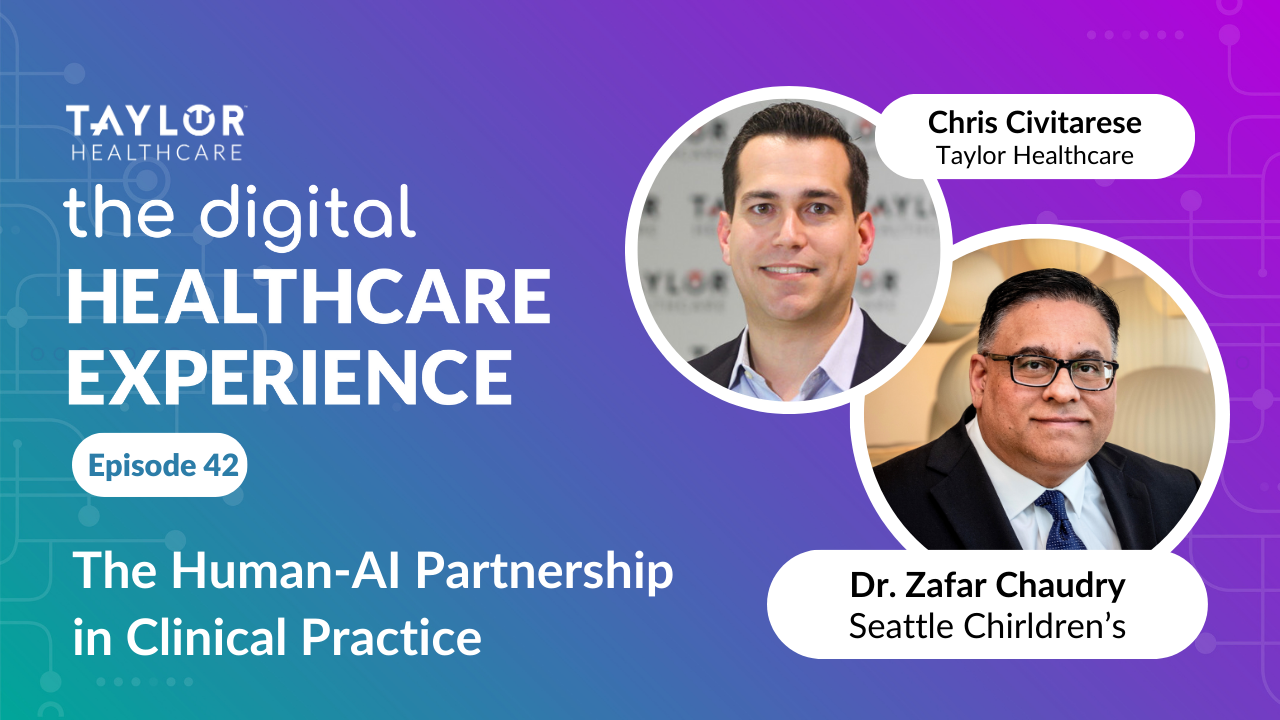
Dr. Zafar Chaudry reveals how AI is transforming healthcare—from clinical decision-making to personalized care. Explore real-world use cases, ethics, ...
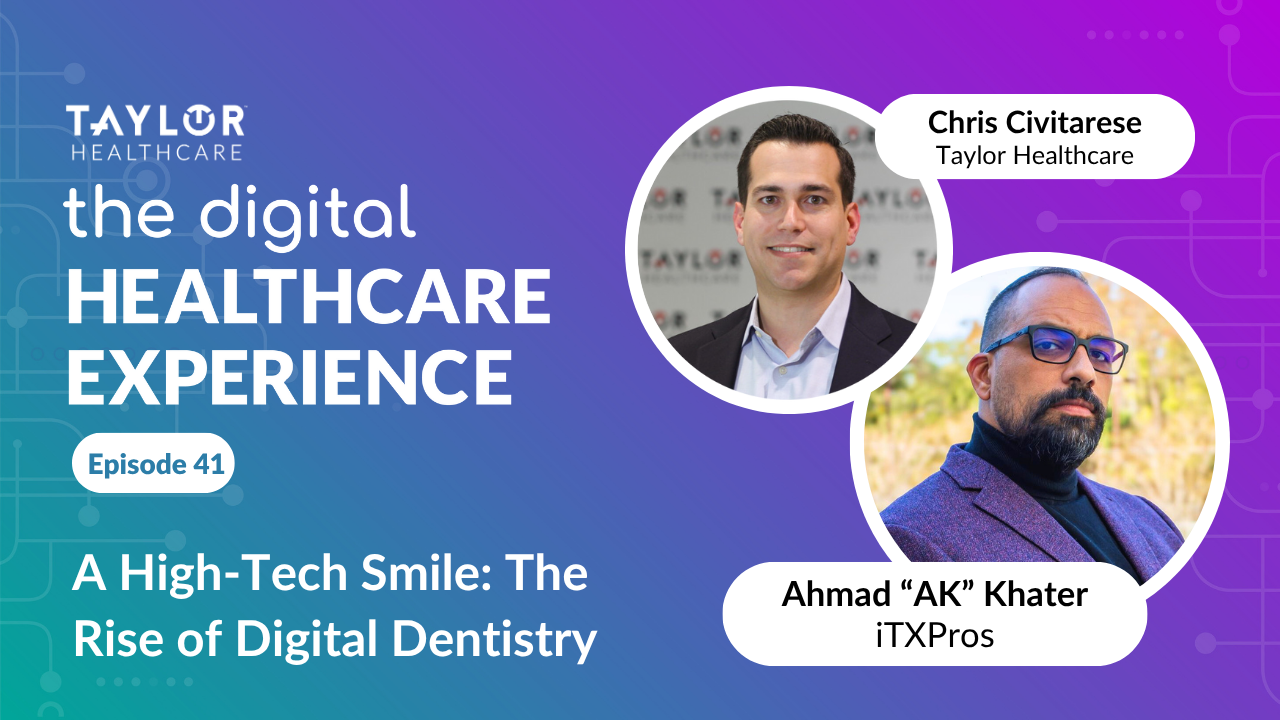
From classical to digital: Ahmad ‘AK’ Khater explains how technology is redefining dentistry, boosting quality, and paving the way for AI and robotics...

Learn how to create ethical AI policies in healthcare—governance, bias, risk management, and the role of practical bioethics with Dr. Lindsey Jarrett
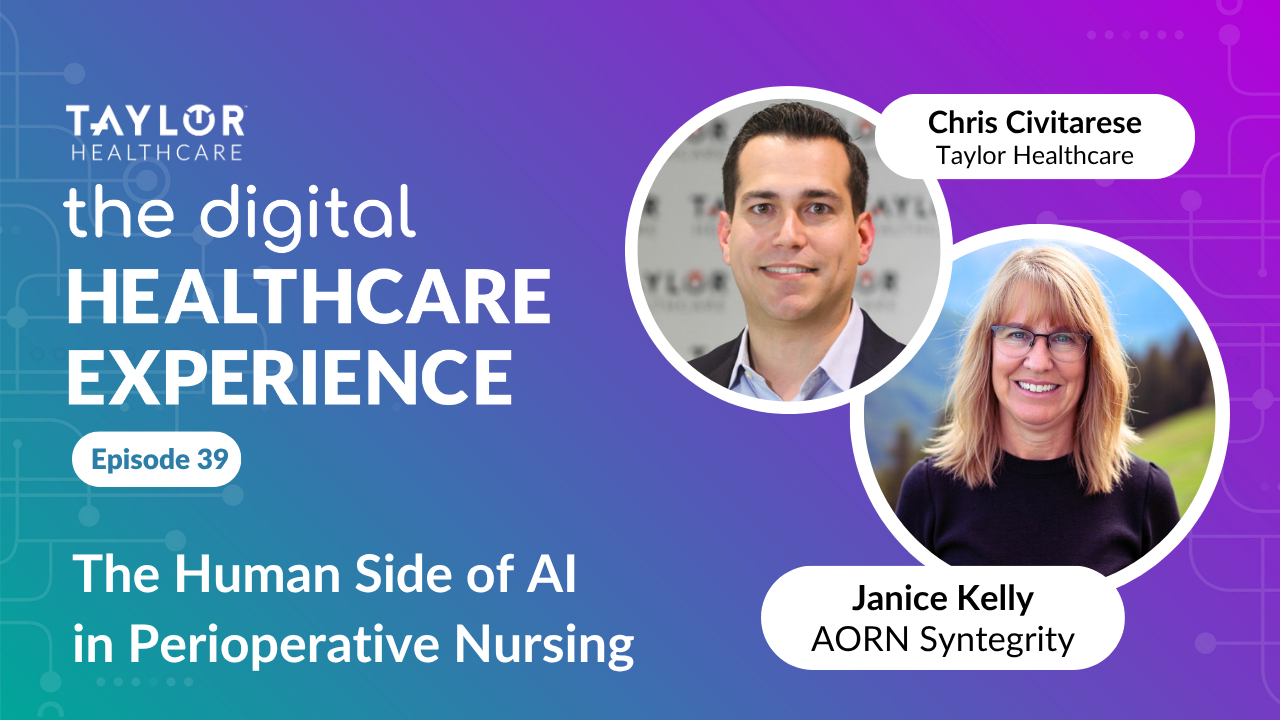
AI is reshaping nursing in the OR. Janice Kelly discusses trust, tech integration, and better outcomes in perioperative care

Discover how moving healthcare to the cloud unlocks AI, security, and workforce efficiency with insights from Dr. Tim Calahan
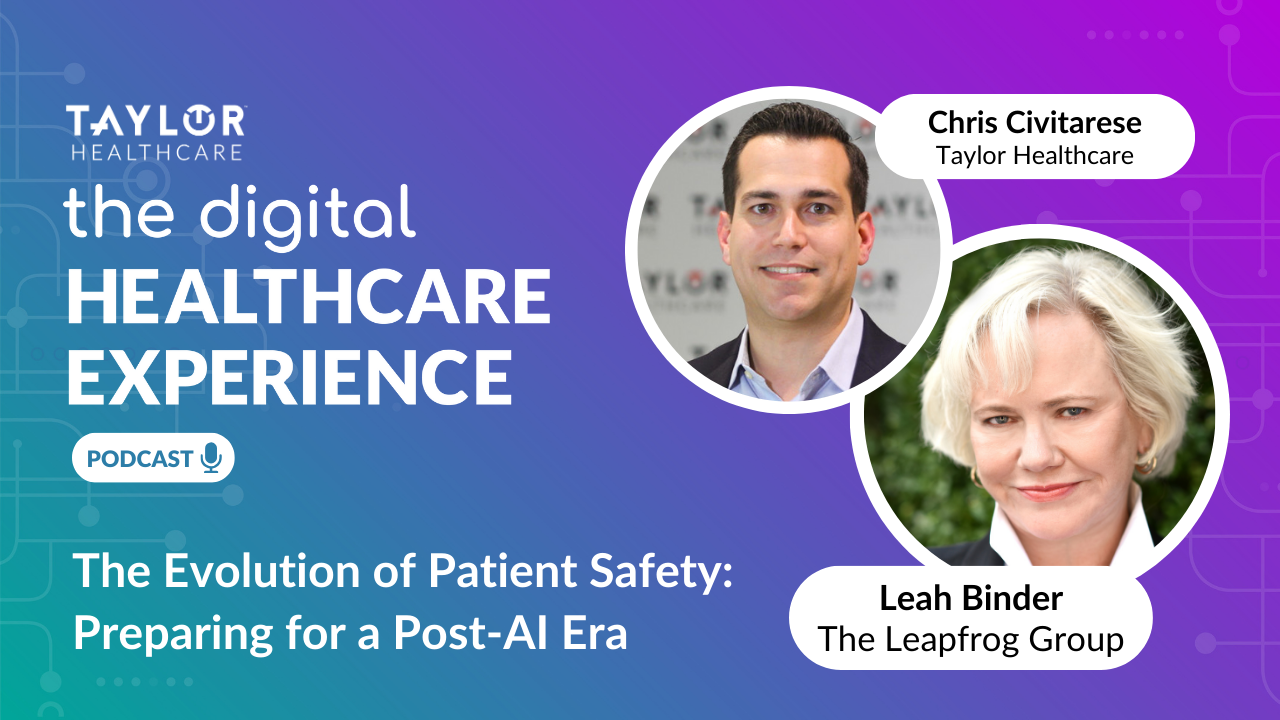
Learn how healthcare IT and AI can prevent harm, reduce burnout, and improve safety with insights from Leah Binder

Dr. Roger Smith reveals how AI and robotics are transforming surgery—real-time insights, smarter recovery, and future innovation

Explore ways to fight nurse burnout, toxic culture, and charting overload—plus tips on AI, leadership, and retention with Dr. Laurent
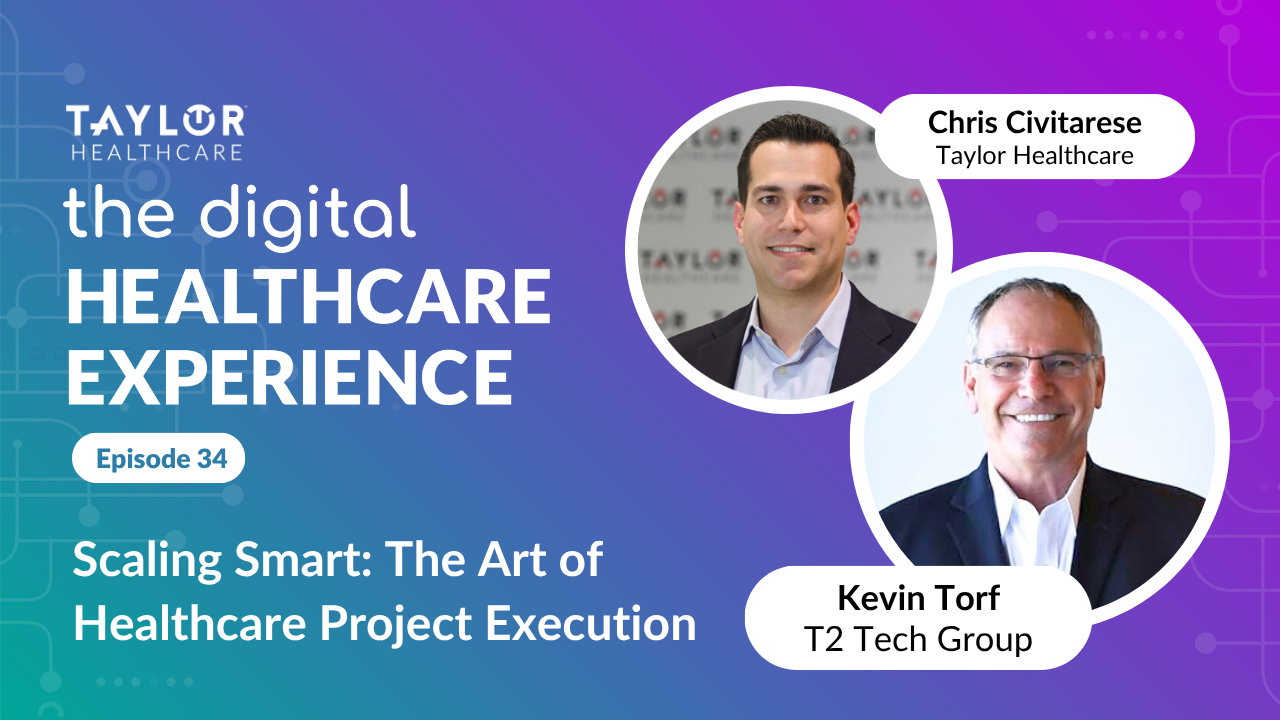
This episode wraps up our summer podcast series “Bit By Bit: Healthcare IT Project Success.” Unlock smarter healthcare IT project management with Kevi...
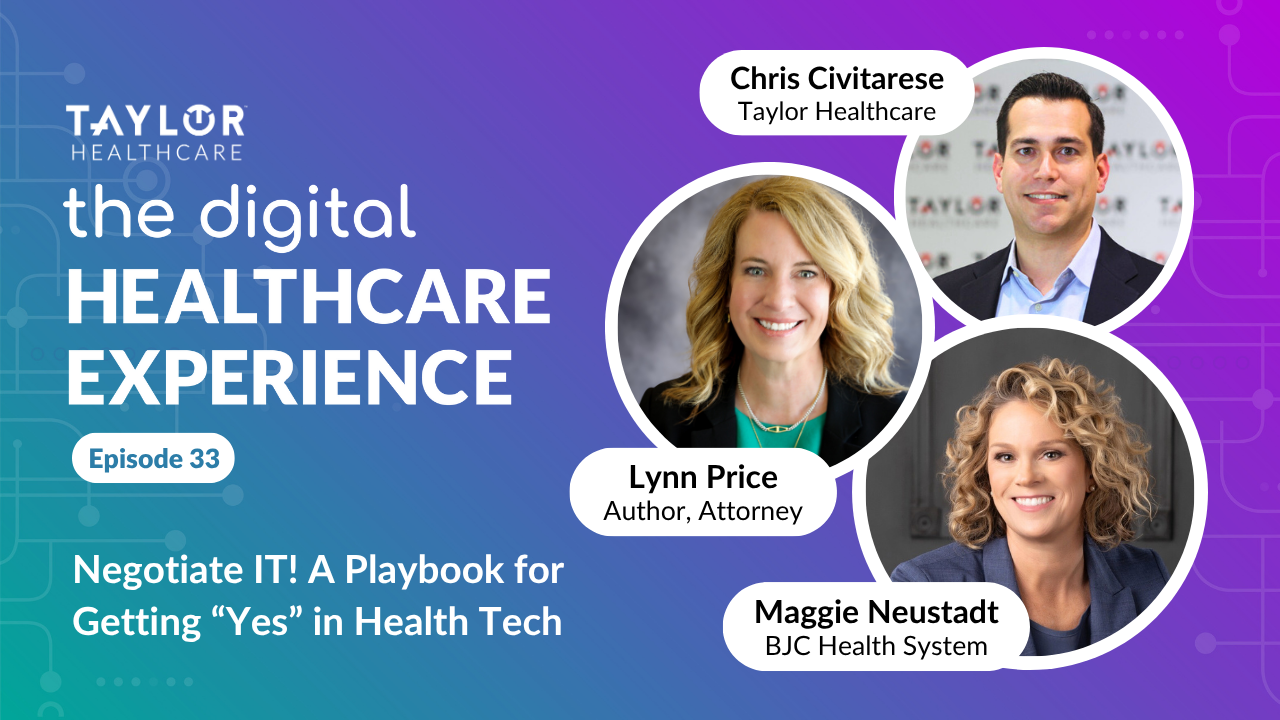
Welcome to Part 2 of our summer podcast series “Bit by Bit: Healthcare IT Project Success” features two guests, both seasoned attorneys and negotiatio...

The severe impact of IT downtime on healthcare delivery drives five strategies to prepare for and respond to IT downtime in hospitals effectively.

Ensure Title VI compliance with language access requirements for LEP individuals. Learn how providers can meet federal and state mandates.

Welcome to Part 1 of our Summer Series "Bit by Bit: Healthcare IT Project Success" featuring Alyssia Crews, VP at Orlando Health.

How do you patent health tech inventions in today’s challenging IP landscape, especially when AI is reshaping the game? We explore the complex world o...

Featuring Dr. Angelo Milazzo, Chief Medical Officer at Duke Health Integrated Practice. In this episode, we explore how cutting-edge technology is res...

In this episode, we sit down with Thad Price, CEO of Talroo, to explore how the healthcare staffing industry is transforming through gig marketplaces,...
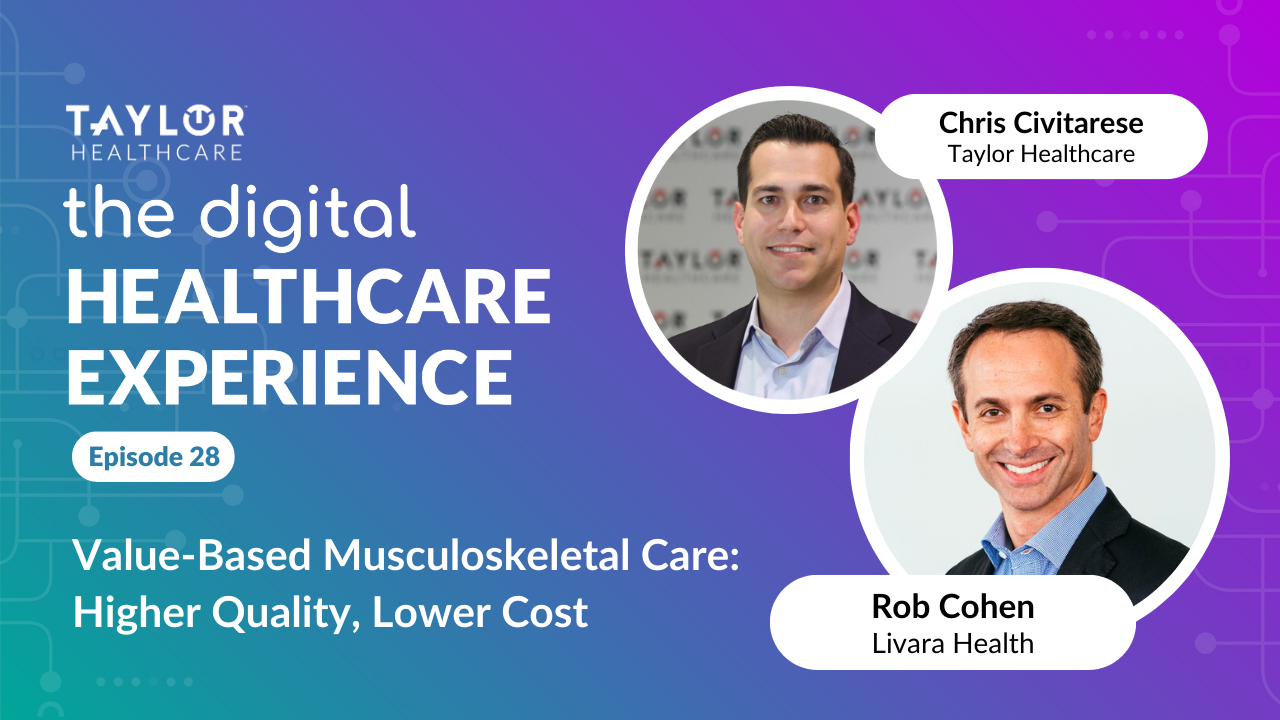
“It’s being proactive rather than reactive, which physicians or others didn’t get compensated for previously. It’s doing the things that keep people h...

“We were looking at why patients may sue doctors, and why some doctors get sued more than others. We have a process to identify benchmarking and give ...
Yes, iMedHealth integrates with all major Electronic Health Record (EHR) systems.
iMedHealth’s content library is maintained by a dedicated team of healthcare professionals. All newly requested procedures are peer-reviewed by at least three physicians from the relevant specialty.
As a user of iMedConsent, your organization would have access to over 5,000 procedures and treatments across 37 specialties, used by top organizations nationwide.
iMedHealth is designed to be user-friendly, making training across hospital systems simple and efficient. We use a “train-the-trainer” approach, providing hands-on training, customized demonstrations, and quick-use guides to help with implementation.
Our biggest advocates are physicians and residents, which boosts adoption rates through peer-to-peer interactions.
Each iMedHealth implementation is assigned a dedicated project manager who helps determine requirements and timelines, drafting a Statement of Work (SOW). The average timeline for implementing iMedHealth is 3 to 6 months and depends heavily on your specific needs.
Regardless of the timeline, after iMedHealth is up and running, healthcare providers see measurable improvements within three months of implementation.
Our platform is subscription-based, which includes implementation and ongoing maintenance—there is no large upfront cost. Pricing is determined by a variety of factors and tailored to the specific needs of each hospital system.
We serve a wide range of hospital systems, primarily mid-size to large Integrated Delivery Networks (IDNs) that have a strong focus on education.
At Taylor Healthcare, we prioritize data and privacy by:

Fields marked with an asterisk (*) are required.